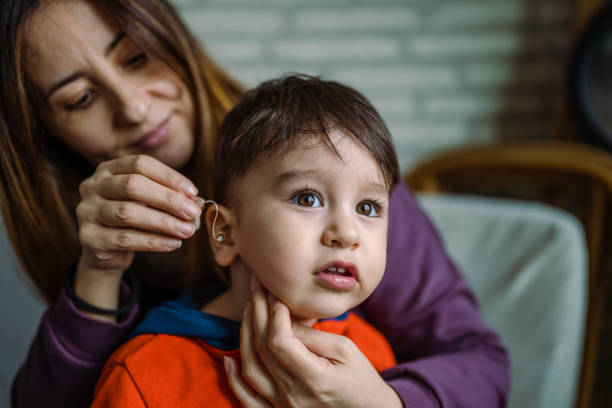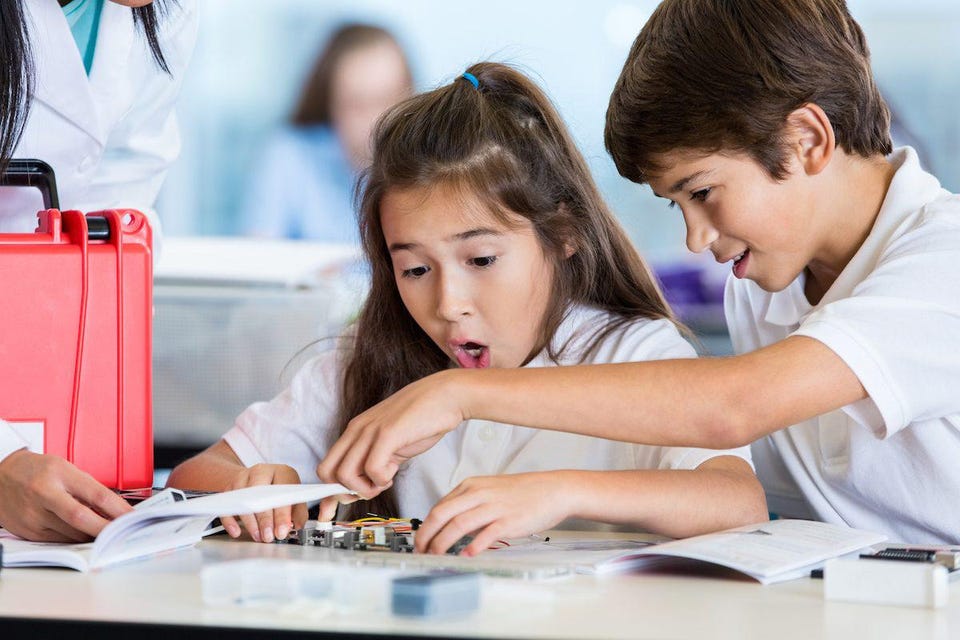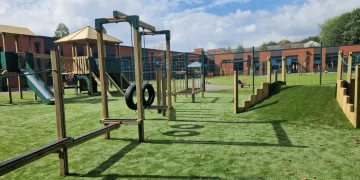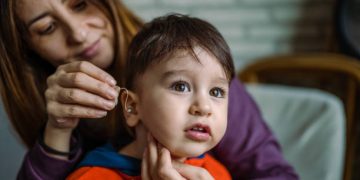Rights of parents and children

Parents and children have special rights that are specific to their situation. These rights include:
- Best interests of the Child
- Parents have responsibilities, duties, and rights
- Separation of children
- Adoption of children
- Right of Children to be Heard
- Children in the criminal justice system
- Refugee Children
- Families with disabilities
Children are defined as persons aged under 18 years in the Convention on the Rights of the Child.
What are the rights of children and parents?
Australia is a signatory to seven key international human rights conventions. Article 3 of the Convention of the Rights of the Child and paragraph 24(1) of the International Covenant on Civil and Political Rights contain the rights of parents and their children.
See also Articles 5, 9, 12, 20, 21, 22, and 40 of the Convention on the Rights of Persons with Disabilities and Article 14(4) of the ICCPR.
When should I consider the rights and responsibilities of both parents and children?
When you’re working on a law, policy, or program that:
- Refers to the care provided by parents, other guardians, or informal carers for children.
- Refers to any aspect of child welfare, including childcare arrangements
- People with disabilities can care for children.
- The law provides for the removal from care of parents or others responsible for children.
- Refers to any situation that would split up a family or parent and Child. For example, forcing them to separate or live apart.
- Makes provision for the children of parents who have been detained or imprisoned
- Refers to adoption, foster care (including guardianship), permanent care, and informal care for children in Australia
- Adoptions that take place outside of the country
- Surrogacy
- Refers to any situation which would prevent the reunification with the family or parent(s) of an infant.
- Refers to any aspect of care provided outside the home
- Refers to any aspect of the treatment of children during the criminal justice process and
- The treatment of refugees and those who claim to be refugees.
This list is not exhaustive.
What are the rights of children and parents?
In a variety of policy contexts, it is important to consider the rights that parents and children have.
Child’s best interests
According to the CRC, countries must apply the principle of “best interests of the child.” This principle is applicable to all actions involving children. It requires that active measures are taken to protect children’s rights, promote their survival, development, and well-being, and assist and support parents and other individuals who have a responsibility to ensure the recognition of children’s rights. All legislative, administrative, and judicial institutions and bodies are required to consider the impact of their decisions and actions on children’s interests and rights.
Parents’ rights, responsibilities, and duties
In accordance with the CRC, countries must respect the responsibilities and rights of parents and other people who are responsible for a child and provide guidance and direction in order to help the Child exercise the rights recognized in the CRC.
The CRC also requires that countries recognize that both parents share responsibility for the development and upbringing of children and provide assistance to parents in fulfilling their duties. This includes ensuring that working parents’ children have access to childcare services and facilities. Parents and legal guardians should be informed of their right to receive information about payments and services that they are entitled to in the interest of their children.
According to the CRPD, countries must ensure that people with disabilities have the same rights and responsibilities as other people in regard to the adoption and guardianship of children and provide them with the appropriate support to fulfill their parental responsibilities.
As a means to eliminate discrimination, CEDAW requires that countries ensure, on the basis of equality, that men and women have the same rights, regardless of their marital status in relation to their children. They also must guarantee the same rights, irrespective of their marital situation, with regard to guardianship or adoption of children.
Separation of Children
In accordance with CRC, all countries must ensure that children are not separated from their parents without their consent unless competent authorities decide, after judicial review and in accordance with the law, that the separation is necessary to protect the best interest of the Child. All parties involved in any proceeding involving the separation of children must have an opportunity to be heard. When a country takes action against a parent (such as imprisonment), the separation will result. The government is required to inform the parents of their Child’s whereabouts upon request.
Children who are temporarily or permanently removed from their families have a right to receive special protection and support. This may include foster placements or placements in institutions that provide care for children.
Adoption of Children
According to the CRC, countries are responsible for the adoption of minors. Adoptions can only be authorized by authorities that determine the adoption to be permissible.
If the Child is unable to be properly cared for by the country of the Child’s origin, inter-country adoption can be considered. Inter-country adoptions must be subject to the same standards and safeguards as national adoptions. Countries require international cooperation to ensure the placement of children in other countries is done by competent authorities.
Children’s right to be heard
According to the CRC, children who can form their own opinions have the right to express themselves. These views must be given the appropriate weight according to the age and maturity level of the Child. This includes the right to be heard by a judge or administrative body in any proceedings that affect the Child.
Children and the criminal justice system
According to the ICCPR, criminal proceedings involving minors must take into account their age and whether it is desirable to promote their rehabilitation. Arresting, detaining, or imprisoning a child is only a last resort that should be done for the shortest period possible. According to the CRC, countries must recognize that a child who is accused of a crime has the right to be treated with dignity, taking into consideration the age of the Child and the desire to promote the Child’s reintegration into society.
Children are entitled to the same protections as adults under Article 14 of ICCPR. The country must establish a minimum age of criminal responsibility, and it must not exceed a reasonable limit. The countries must also promote alternative measures to deal with children that do not involve judicial procedures, such as counseling, care, guidance, supervision orders, foster care, education, and vocational training.
Refugee children
According to the CRC, countries are required to take the necessary measures to ensure a child seeking refugee status or considered a refugee – whether unaccompanied or accompanied by their parents or any other person – receives the protection stipulated in the CRC as well as human rights and humanitarian treaties such the Convention relating to the Status of Refugees. The UN and other international organizations are expected to work with countries to track down the parents of refugee children or any other family members in order to provide the information needed for their reunification.
Families with disabilities
In various ways, the CRPD enshrines for people with disabilities the right to family. The CRPD requires that countries take all necessary steps to ensure that children with disabilities enjoy all their human rights and freedoms equally with other children. It also states that the best interest of the Child should be the primary consideration in any decision affecting children with disabilities. The CRPD guarantees the rights to marriage, reproduction, fertility, the right to raise children, and a family unit that is united on an equal footing with the rest. The CRPD requires that countries respect family life by assisting people with disabilities in realizing their rights. In addition, the Convention states that if the immediate family cannot care for an individual with a disability, the Convention requires that alternative care be provided within the family or, if that is not possible, in the community.
Declaration on the Rights of Indigenous People
The Declaration on the Rights of Indigenous Peoples includes provisions that are relevant to the rights of children and parents. The Declaration is not a legal obligation, but it informs how governments protect and engage with Indigenous people.
Can the rights of parents or children be restricted?
The human rights treaties recognize that countries can establish their own rules on certain matters, like adoption, as long as they respect the fundamental principles set out in the treaties.
Derogation
Article 4 of the ICCPR allows countries to deviate from their obligations under the Covenant. This includes the protection of children, as per Article 24(1). “In times of public emergency that threatens the lives of the nation, and whose existence is officially proclaimed.” These measures can only be taken “to the extent that is strictly necessary by the exigencies in the situation” and must not conflict with other international obligations. They also cannot discriminate solely based on race, color, sex, or religion.
Limitations
Other primary considerations may override the best interests of the Child as defined by the CRC. Other primary considerations include public safety considerations and whether an action taken to benefit the Child is so expensive that it outweighs the benefits.
Page top
What domestic laws protect the rights of children and parents?
The Child Care Act of 1972 contains the Commonwealth legislation governing child care.
Current family assistance is made up of a variety of payments, and it’s primarily governed under two statutes. A new tax system (family assistance) act 1999, and Administrative Act for a New Tax System Family Assistance 1999. These payments come in a variety of forms, such as childcare subsidies and childcare rebates.
Inter-country adoption is governed by Division 3 of Part XI in the Family Law Act of 1975 and the Family Law Regulations (Hague Convention on Intercountry Adoption), 1998.
The Family Law Act also covers children born through artificial conception and surrogacy (see sections 60H & 60HB).
The Criminal Code Act of 1995sections 4M and 4N and the Crimes Act of 1914sections 7.1, 7.2, and 4M and 4N provide that children under the age of 10 are not criminally liable and that those between the ages of 10 and 14 can only be held criminally responsible for an offense if they know that their conduct is wrong.
Some laws have specific provisions for children involved in criminal proceedings. As an example, part 1AD of the Crimes Act protects children from sexual crimes.
The Immigration Act 1946 provides for the guardianship and care of non-citizen unaccompanied children arriving in Australia.
State and Territory law provides for the care of children by non-parent caregivers (unrelated foster parents or relatives and kinship carers, primarily grandparents). It may be because of a child-protection intervention or when parents are unable to provide adequate care or alternative accommodation during times of conflict in the family.
What other rights or freedoms are related to the rights of parents and their children?
It is important to consider the rights of both parents and children.
- Article 17 of the ICCPR guarantees the right of freedom from arbitrary and unlawful interference in the privacy of a family.
- Article 23 of the ICCPR provides for the protection of family members.
- Article 14 of the ICCPR guarantees fair trials and fair hearings.
- Article 10(2) of ICCPR requires that children accused of crimes be separated from adults.
- Article 14 of the ICCPR provides minimum protections in criminal proceedings.
- The right to protection from exploitation, violence, and abuse.













